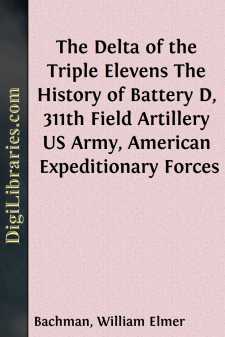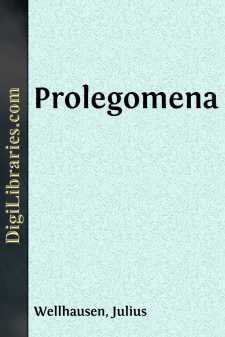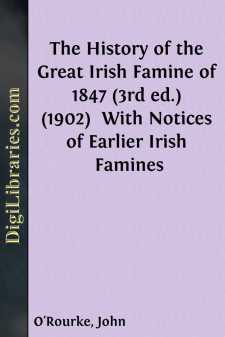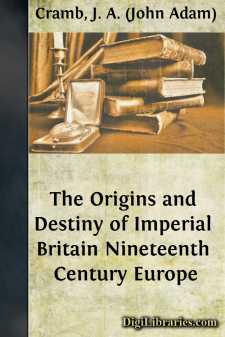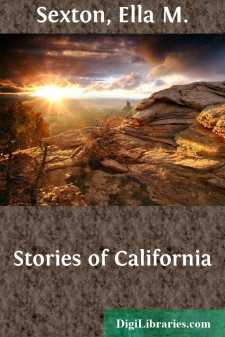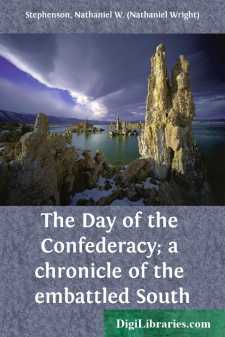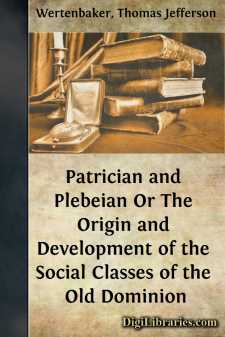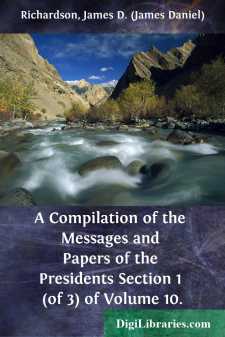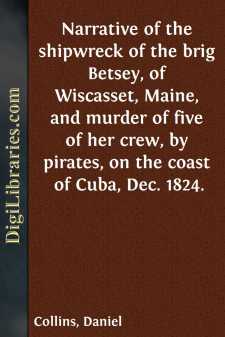History
- Africa 30
- Americas (North Central South West Indies) 50
- Ancient 68
- Asia 58
- Australia & New Zealand 8
- Canada 41
- Caribbean & West Indies 1
- Civilization 20
- Eastern Europe 12
- Europe 310
- Expeditions & Discoveries 60
- General 77
- Historical Geography 1
- Jewish 9
- Latin America 3
- Medieval 8
- Middle East 13
- Military 248
- Revolutionary 8
- Study & Teaching 5
- United States 353
- Western Europe 56
- World 13
History Books
Sort by:
CHAPTER I. SOURCES OF THE DELTA. Official records in the archives of the War Department at Washington will preserve for future posterity the record of Battery D, of the 311th United States Field Artillery. In those records there is written deep and indelibly the date of May 30th, 1919, as the date of Battery D's official demobilization. The history of Battery D, therefore, can be definitely...
more...
The turning-point in the history of the sacrificial system was the reformation of Josiah; what we find in the Priestly Code is the matured result of that event. It is precisely in the distinctions that are characteristic of the sacrificial law as compared with the ancient sacrificial praxis that we have evidence of the fact that, if not all exactly occasioned by the centralisation of the worship, they...
more...
by:
John O'Rourke
The great Irish Famine, which reached its height in 1847, was, in many of its features, the most striking and most deplorable known to history. The deaths resulting from it, and the emigration which it caused, were so vast, that, at one time, it seemed as if America and the grave were about to absorb the whole population of this country between them. The cause of the calamity was almost as wonderful as...
more...
WHAT IS IMPERIALISM? [Tuesday, May 8th, 1900] The present age has rewritten the annals of the world, and set its own impress on the traditions of humanity. In no period has the burden of the past weighed so heavily upon the present, or the interpretation of its speculative import troubled the heart so profoundly, so intimately, so monotonously. How remote we stand from the times when Raleigh could sit...
more...
by:
Ella M. Sexton
CALIFORNIA'S NAME AND EARLY HISTORY A Spanish story written four hundred years ago speaks of California as an island rich in pearls and gold. Only black women lived there, the story says, and they had golden spears, and collars and harness of gold for the wild beasts which they had tamed to ride upon. This island was said to be at a ten days' journey from Mexico, and was supposed to lie...
more...
Chapter I. The Secession Movement The secession movement had three distinct stages. The first, beginning with the news that Lincoln was elected, closed with the news, sent broadcast over the South from Charleston, that Federal troops had taken possession of Fort Sumter on the night of the 28th of December. During this period the likelihood of secession was the topic of discussion in the lower South....
more...
PREFACE Forty-seven years have passed since this volume was first published; in that time a mass of source material has been made available to the historian and numerous books on early Virginia history have been published. But I believe that its main theses have not been shaken. The old belief that the Virginia aristocracy had its origin in a migration of Cavaliers after the defeat of the royalists in...
more...
SPECIAL MESSAGES, ETC. SATURDAY, August 22, 1789. The President of the United States came into the Senate Chamber, attended by General Knox, and laid before the Senate the following state of facts, with the questions thereto annexed, for their advice and consent: "To conciliate the powerful tribes of Indians in the southern district, amounting probably to 14,000 fighting men, and to attach them...
more...
by:
Daniel Collins
NARRATIVE. On the 28th of November, 1824, I sailed from Wiscasset, (Me.) for Matanzas, in the Island of Cuba, on board the brig Betsey, laden with lumber; our officers and crew consisting of seven, viz. Ellis Hilton, of Wiscasset, master; Joshua Merry, of Edgecomb, 1st mate; Daniel Collins, of Wiscasset, 2d mate; Charles Manuel, (a Portuguese), Seth Russell, and Benj. Bridge, seamen; and Detrey Jeome,...
more...
I. THE ISONZO FRONT1My first impressions of the Italian war centre upon Udine. So far I had had only a visit to Soissons on an exceptionally quiet day and the sound of a Zeppelin one night in Essex for all my experience of actual warfare. But my bedroom at the British mission in Udine roused perhaps extravagant expectations. There were holes in the plaster ceiling and wall, betraying splintered laths,...
more...


